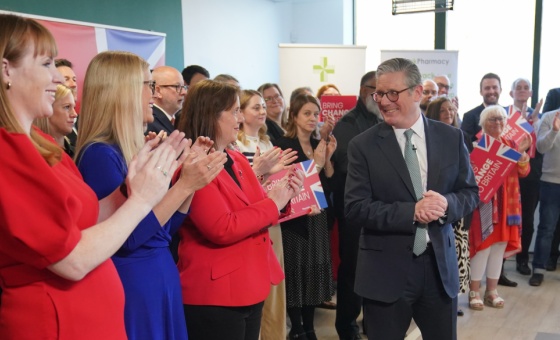This is the last article you can read this month
You can read more article this month
You can read more articles this month
Sorry your limit is up for this month
Reset on:
Please help support the Morning Star by subscribing here
PUBLIC OWNERSHIP would pay for itself, Unite leader Sharon Graham stressed as she slammed a “failed economic model that is playing out its final tune” in Brighton today.
Addressing the union’s policy conference, Ms Graham stressed that “decline is not inevitable — we just need to make different choices and prioritise our communities, not the markets.”
Ms Graham said research by the Unite Investigates team had established it would cost £90 billion to renationalise Britain’s energy sector — money the group said amounted to just two year’s profits.
“If we owned our own energy then businesses would have lower energy rates, we’d have lower household bills — and inflation would have been down by over 4 per cent. That’s a much bigger impact than anything the Bank of England has been able to do — and that would be without jacking up mortgages and rents for ordinary people.”
She said Unite Investigates was now working on two upcoming reports that would provide detailed blueprints for the steel and energy sectors, since political parties were failing on any industrial strategy for Britain.
She called reps to have confidence challenging the “jackanory” stories from the likes of the Bank of England, blaming workers’ wages for inflation rather than corporate profits, and said unions should combine blocking attacks on jobs, pay and conditions with new demands on employers. If a firm posted high profits, a union should demand creation or restoration of final-salary pension schemes, she suggested.
Ms Graham pointed to Unite’s successes in the 20 months since the last policy conference just after she took the reins as general secretary.
Since then the union had fought “over 800 disputes, covering over 200,000 Unite members, [with] 80 per cent already won.” It had put “£400 million into the pockets of our members.”
“Our union can be the driver of change. The real power comes from the workplace. Collective bargaining is still the tried and tested method of pushing up pay,” she declared.
Challenging bosses industrially and combining that with demands on politicians to sign up to policies locally through initiatives like Unite for a Workers’ Economy “is how we will move the centre ground,” she argued, while vowing that Unite would fight “within and outside the law” to defend its members in the face of anti-union laws and attacks on strike pay.
 Ben Chacko
Ben Chacko









